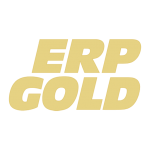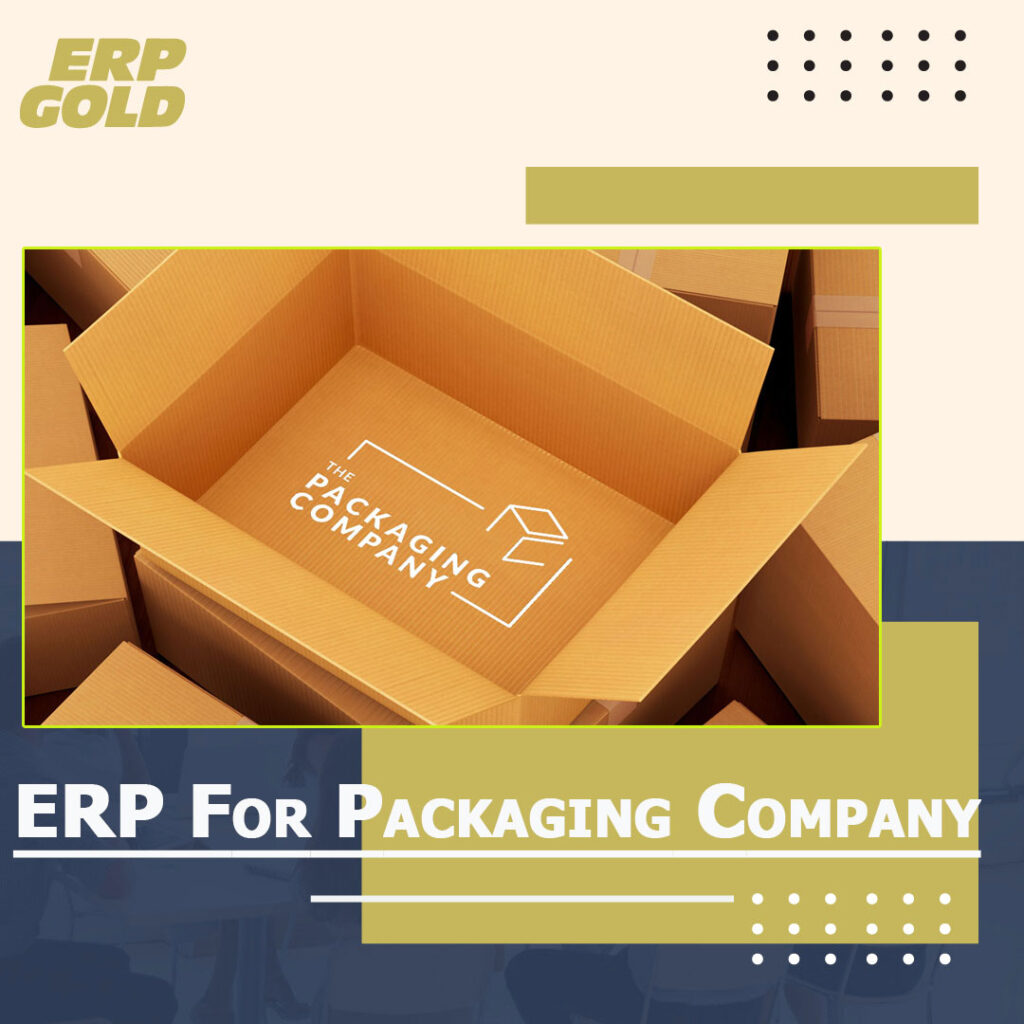What is ERP for Packaging Company . . .?
ERP for Packaging Company may also be defined by its features. And it must include features of lot traceability, component labeling, production planning, and monitoring. This ERP for packaging company should provide sophisticated capabilities including serial traceability, UPC labeling, pack-outs, document management, and bill of materials (BOM) particularly for dies and inks used in packaging operations.
Key Characteristics for ERP for Packaging Company
- Enhanced efficacy
Custom manufacturers aim to do things quicker, better, and more consistently. ERP for Packaging company helps you boost shop productivity by making everything better. You’ll be able to manage your inventory and arrange your store more precisely. Better activities and business processes will make your company more effective and productive.
- Better teamwork
ERPs allow your whole company to share a single database. This facilitates teamwork by allowing your workers to readily exchange information and data. You may use ERPs to break down information barriers and make your workplace more open.
- Better data security
You know what happens when someone deletes data from a spreadsheet. ERP for Packaging company provides a central data repository with tightly controlled access points and user authorization, preventing unintentional data access and changes.
- Better projections
Custom manufacturers need accurate forecasting to properly plan and manage their operations. With an ERP for Packaging company ‘s reporting capabilities, you will be more informed, able to make better choices, and produce better business projections.
- Lower operating expenses
An ERP for Packaging company reduces operational and administrative expenses by eliminating the need for several systems and their related maintenance costs. Also, by better managing long lead goods or other operations, ERPs help you prevent costly delays.
- Solid inventory control
Supply chain management is a critical concern for bespoke manufacturers. A shop’s task flow depends on having the proper supplies on hand at the right time. Custom producers must be able to keep track of inventories and know when to purchase crucial components or raw materials.
- Lower operating expenses
An ERP reduces operational and administrative expenses by eliminating the need for several systems and their related maintenance costs. Also, by better managing long lead goods or other operations, ERPs help you prevent costly delays.
- Scheduling
Scheduling is another key issue for bespoke producers. Balancing machine and personnel schedules to maximize shop productivity is a demanding undertaking for bespoke manufacturers that demands extensive knowledge of your operations and works in progress. Getting data from across your business is difficult without an integrated system.
One of the best features of ERPs is their full visibility. An ERP provides you a 360-degree perspective of your business, including your shop floor. An ERP may provide production information such as employee productivity and machining times.
To have a thorough insight of your business, you used to have to spend hours collecting data and creating reports manually. This data may be used to improve production schedules for both equipment and labor—maximizing capacity and throughput.
- Customer service management
Customers are vital, let’s face it. Your business can’t survive without pleased consumers. To remain in business, you must keep your clients pleased and returning. Bad customer service and poor client experience might hinder your business’s success.
A decent bespoke manufacturing ERP system will include a CRM component that allows you to maintain all of your client data in one location. You’ll be better organised and aware of the progress of each customer’s task. You’ll also be able to address consumer issues and enquiries more quickly and efficiently, improving customer service and relationships.
- Executive data system
In today’s fast-paced business environment, better understanding your firm is critical. With an ERP, you can produce thorough reports based on real-time data from your firm. Most ERPs have thorough reports and templates, enabling you to rapidly produce reliable reports.
You can compare KPIs throughout your whole firm without relying on various spreadsheets or email chains. Better reporting, especially financial reporting, provides for better planning and forecasting.
How ERP for Packaging Company Can Help Logistics?
Companies that employ ERP software claim improved warehouse management, inventory reductions, customer service, and demand forecasts.
Let us examine how ERP software may boost an organization’s logistic activities.
- Inventory Control
It can assist reduce costs in various ways. ERP software may assist improve inventory management by enabling the just-in-time concept. This eases the pressure on raw material availability, and therefore the requirement to keep raw commodities. ERP software provides businesses with accurate and up-to-date inventory data.
ERP systems help company manage shipping, finance, operations, and inventories more efficiently.
- Visibility
ERP software, being a well-integrated and comprehensive solution, can quickly and easily pull essential information from the system to assess a company’s health. This data might be shared with other parties like suppliers.
- Savings
Remember that streamlining inventory management operations saves time and money by reducing production bottlenecks and improving inventory planning. Better organization may also lead to happier customers.
- Financial Reporting
Notably, inventory is a major component of a company’s financial reporting and statements. Whether it’s WIP, completed items, or raw materials, every inventory has a monetary worth that must be tracked. ERP systems assist keep yearly reports and tax filings up to date and correct.
- Effective Demand Forecasting before Low Inventory
An excellent ERP for Packaging Company enhances demand forecasting accuracy and consistency while lowering inventory costs in large-batch manufacturing in SMB’S. Remember that a lean inventory helps to minimize total manufacturing costs and keeps the supply chain nimble and adaptable.
- Low shipping cost
Most manufacturing and wholesale distribution enterprises rely on shipping and distribution. A modern ERP system ensures that consumers get the appropriate goods at the right time.
Among the features are:
Wireless barcode scanning Integration with different rate shopping tools shipping history Pack-to-container capabilities
- Safety of packaging product during transit
A big advantage of ERP software. This saves time since company may produce shipping labels and other documents without having to input data into several systems.
Business owners may easily get the lowest shipping rates by integrating rate shopping ERP software solutions. Upon completion of order packing, the system may immediately fill a full list of possible carriers, their pricing, and services.
Employees choose a choice, and the data is utilized to generate shipping labels and other paperwork, and the goods is ready to ship!
- Meet Customers and regulates Demands
ERP automation may replace manual procedures, rules, decisions, and other labor-intensive tasks. They can offer pricing and monitor orders.
- Returned Goods
Many current ERP systems may assist organisations reduce or eliminate retail returns that clog the stock room and necessitate reshipment. Customers merely need to print a shipping label to carry their purchases to a convenient drop-off place.
- Order Control
An ERP system is the glue that links practically every manufacturing and distribution firm together.
Order management modules in ERP systems handle order input, tracking, delivery dates, and credit limit checks. These are vital qualities for most manufacturers.
- Orders and Inventory Sync
A good order management module in an ERP system may reduce time-consuming order development and tracking procedures, duplicate handling mistakes, and data fragmentation.
- Faster Order Processing
An ERP order management system may help you fulfill orders faster and manage sales better. The programmes may assist optimize cash flow, reduce order mistakes, and speed up order fulfillment. As well as consumer satisfaction.
Reporting and analysis tools may also help balance workloads and detect process bottlenecks.
- Analyze Vendor Results
ERP systems are sophisticated and help company assess suppliers’ qualitative and quantitative attributes. This may assist senior management make better judgments and boost performance in today’s competitive industry. It also aids buying departments in selecting suppliers and vendors while enabling ongoing monitoring. This data might aid when switching suppliers.
- Boosted Customer Happiness
Notably, precise production planning, simplified process scheduling, better inventory management, and tight coordination of distribution networks may help enterprises reduce product delivery time, which is a key performance parameter for most businesses. On time delivery is crucial to maintaining and increasing customer satisfaction.
ERP systems are wonderful because they provide real-time data so decision-makers can quickly see inventory levels at any moment.
Conclusions
For total packaging company success, organizations must significantly increase their logistics performance. The key to increasing operational efficiency in a corporation is minimizing shelf waste and reducing expenses for warehouses and deliver it to delivery hubs. Statistics show that every small organization spends at least 25% of their budget on ERP with dependable logistics and supply chain management capabilities.
Using a robust ERP system reduces labor and other operational expenses. It helps most companies better manage their entrepreneurial resources and maximize their ROI.

